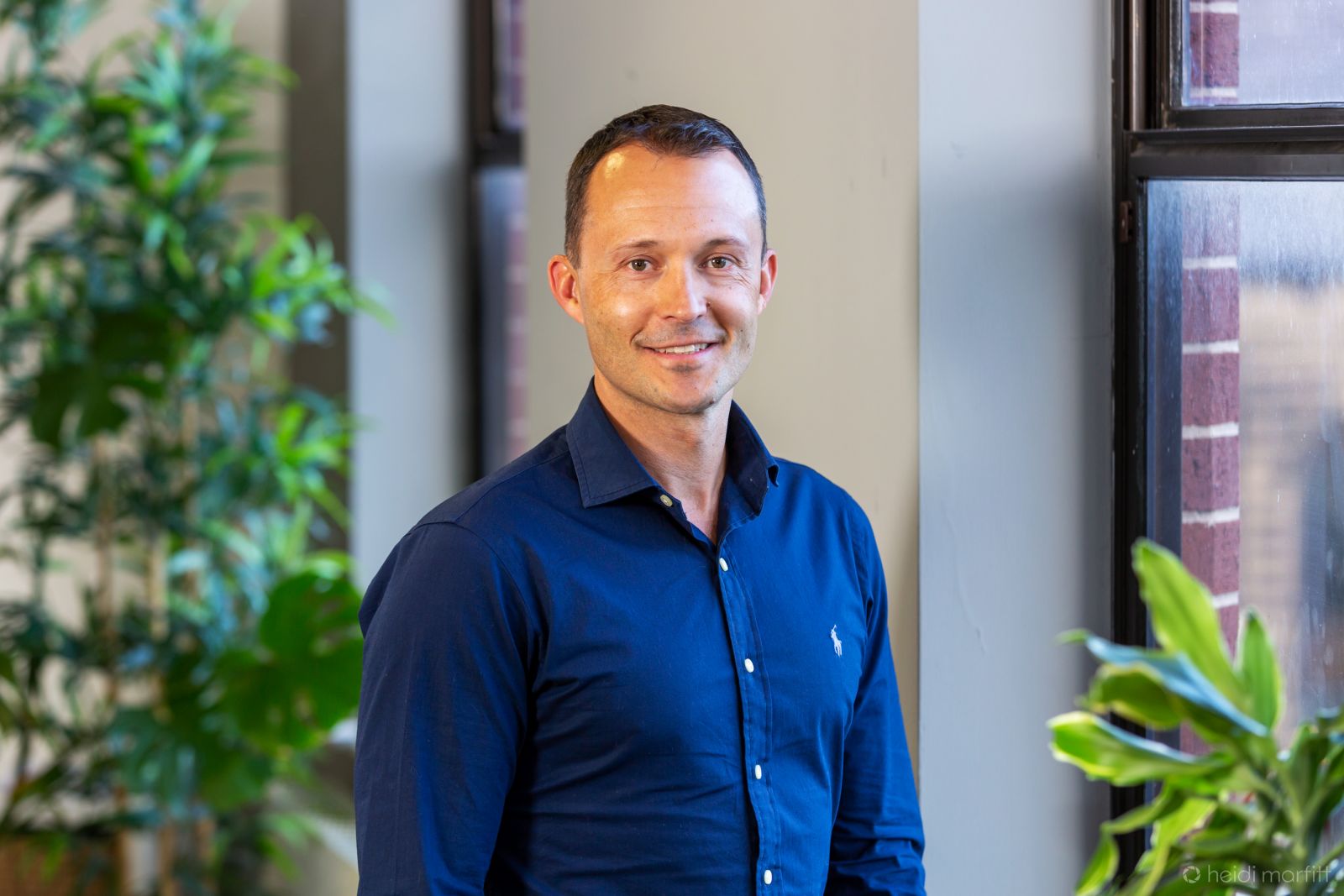BESA Supports CIBSE's Pledge to Inspire New Generation of Engineers
The building services industry has been urged to rally behind new CIBSE President Kevin Mitchell’s campaign to inspire a new generation of engineers. Kevin, in...
Read Full Article
The government’s Heat and Buildings strategy pledged huge investment in heat pump innovation, but how can we re-skill and recruit to make this happen?
We spoke to representatives from the worlds of recruitment, engineering and manufacturing to find out.
New gas boilers will be banned from 2035 as the government seeks to transition homes to low carbon alternatives. It has pledged to drive down the cost of installing and operating electric heat pumps by shifting green surcharges from electricity to gas bills to make heat pumps cheaper to run.
It will also offer installation grants of up to £5,000 to homeowners as part of a £450 million fund launching in April. This means it should cost the same amount to install a heat pump as a new boiler. It also commits the government to investing £60 million in heat pump innovation to make them smaller and easier to install.
BESA’s chief executive officer David Frise believes that delivering on the country’s wider low carbon pledges now requires a concerted focus on training and skills:
“Switching the industry from traditional fossil fuel solutions to more renewable and low carbon systems requires a monumental programme of reskilling and recruitment,” he said.
“It also has major supply chain implications. We are not just talking about single pieces of technology here – installing a heat pump (or any fossil fuel alternative) calls for a certain approach to projects and requires installers to consider the building as a complete system.
“Someone who has spent their career installing boilers cannot just turn round and start putting in heat pumps without detailed training to understand the nuances of low-temperature heating including improving building insulation.”
BESA said its members and the wider built environment sector was ready to step up to the challenge of developing a larger skilled workforce to underpin the government’s strategy but called for greater support for employers and wider promotion of built environment careers.
"Heating Equipment Manufacturers will have to step-in and provide a high level of technical support for everyone involved in design and installation. It will be necessary to get manufacturers’ involved in projects at a much earlier stage, due to the increased risk of design or installation oversights.”
–Steve McConnell
Director, Industrial & Commercial Heating Equipment Association
Steve McConnell, Director of the Industrial & Commercial Heating Equipment Association, feels that the technical support of manufacturers will be imperative in this transition:
“In terms of a skills shortage, the non-domestic sector has a certain advantage because most projects are designed by Building Services Consultants who have professional indemnity insurance. Even so, designing a heating system with a heat pump needs a different approach to ensuring the correct flow rates are achieved and comfort levels are assured.”
“The diversity of projects within non-domestic installations means that a one-size-fits-all training course would not deliver sufficient knowledge to designers or installers. Heating Equipment Manufacturers will have to step-in and provide a high level of technical support for everyone involved in design and installation. It will be necessary to get manufacturers’ involved in projects at a much earlier stage, due to the increased risk of design or installation oversights.”

Picture: a photograph of Steve McConnell
Steve notes that the skills supposedly missing are already prevalent within manufacturing:
“The skills are already there within the technical department of each heating equipment manufacturer and ICOM members go to great lengths ensuring the technical aspects of a project are covered, this is because it is very often the product that is blamed for poor performance when the design or install goes wrong.
“Designers and installers will soon learn the new skills but there will be a transition period where they will have to lean heavily on the technical support of manufacturers and this support will be willingly given.”
Paul Connolly, CEO of 300 North, a recruiter that specialises in facilities management roles, sees growth in the sector as a driver for organisations to diversify their workforce:
“To reach the current net-zero targets there should be 600,000 heat pump installations per year by 2028, requiring an estimated workforce of 12,000+ trained heat pump installers.
“In the strategy the government identifies the need for engaging with further education (FE) and industry bodies to create ambitious training and reskilling plans including new and updated qualifications in F-Gas and SRAC. The CITB reiterates the need for industry bodies to work alongside FE institutions to design courses and qualifications that identify and meet the needs of the sector long term, including maintenance work and upskilling as heat pumps evolve.

Picture: a photograph of Paul Connolly
"Critically, this growth in the sector is an opportunity for companies to diversify their workforce by bringing in people from underrepresented groups which will attract these companies to young people entering the workforce now and in the future. Additionally, companies who support the training and development of their current employees will benefit from employee retention, not to mention that “existing heating engineers can be upskilled to install heat pumps in one week or less.
“Tackling this skills shortage will require a whole of sector approach, as well as pushing the government to keep to their long term targets in order to create a lasting solution. “
Michelle Morrison, Managing Partner at PRS Energy, who places skilled professionals in the global energy sector, feels that looking outside of the industry could be a potential solution to the skills shortage:
“Organisations are increasingly looking outside of the industry to secure skilled professionals with the right transferable skills. For example, employers in the offshore wind market are approaching oil and gas professionals due to the alignment of skills and synergies between projects.
“Ex-forces personnel are another key focus area in the energy sector, with organisations actively targeting these professionals due to their high technical and organisational capabilities, determination and work ethic. Furthermore, a growing number of energy organisations are investing heavily in developing structured and rewarding green energy apprenticeship schemes and graduate programmes to attract a younger workforce.”

Picture: a photograph of Michelle Morrison
Michelle also agrees that the change represents an opportunity to widen the demographic of engineers in the UK:
“Perception is still a key challenge for employers. For many years, the energy sector has been largely white and male-dominated, particularly on the engineering side, and leaders are working hard to change this. 2021 has seen significant effort put into developing robust Diversity & Inclusion (D&I) strategies, which drive improved hiring practices that help employers tap into a broader talent demographic.”
Picture: a photograph of two people working at a computer
Article written by Ella Tansley | Published 18 November 2021
The building services industry has been urged to rally behind new CIBSE President Kevin Mitchell’s campaign to inspire a new generation of engineers. Kevin, in...
Read Full ArticleThe Building Engineering Services Association is encouraging military engineers transitioning to civilian life to consider becoming trainers, assessors and building...
Read Full ArticleA report commissioned by EngineeringUK says that vacancies for green engineering roles in the UK increased by 55 per cent in the past five years, driven by the focus on...
Read Full ArticleAn M&E services provider is calling for ex-Armed Forces personnel to consider a career in the commercial heating sector. Lord Combustion Services wants to...
Read Full ArticleFor National Careers Week, Michelle Connolly from 300 North shares her advice on how FM companies can make the sector more appealing to young people. Michelle...
Read Full Article300 North, the FM recruiter, is partnering with Uptree, a careers education and work experience platform championing diversity, inclusion and equality for all. Uptree...
Read Full ArticleChurchill is the headline sponsor for ThisWeekinFM’s “Ex-Military - A Journey Into FM” event. The networking and careers event event, held on...
Read Full ArticleThe building engineering sector will not be able to address its skills shortages if it keeps trying to replicate the past, according to several leading industry...
Read Full ArticleKris Nicholson, who had a 34-year career in the Royal Navy as a Logistics Officer, has joined Compass Group’s Armed Forces Committee as Co-Chair. Kris joins...
Read Full ArticleEquans has secured £193,000 in Industry Impact Funding from the Construction Industry Training Board. The funds will be used to build competence across the...
Read Full Article